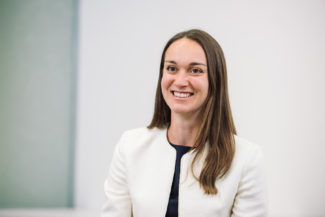Amended claims must not be obvious or arbitrary
26.01.2015
In a decision dated 21 October 2015, the Patents Court (Morgan J) held that Boehringer Ingelheim’s unconditionally amended patent claims covering capsules for use in an inhaler to deliver tiotropium to the lung of an individual with Chronic Obstructive Pulmonary Disease (COPD) or asthma were invalid. The Court considered that the new claims requiring HPMC capsule material and a defined moisture content lacked inventive step and comprised characterising features that were arbitrary.
Considering inventive step, the Court felt that the skilled team should comprise a clinician specialised in respiratory medicine and a formulator. As is often the case, the clinical expert instructed in the case was thought to have greater knowledge than the person skilled in the art, but nonetheless, the Court considered this expert to be capable of identifying the knowledge to be attributed to that person. The Court did not decide whether a regulatory expert would in fact be part of the skilled team.
On the evidence, the Court considered that tiotropium was part of the common general knowledge of the relevant clinician, a specialist in respiratory medicine, largely because the emergence of a new drug to treat COPD was rare and when such a drug was identified as a possibility it was welcomed with a high level of interest. It was also known that it could be administered at a particular dose in combination with a lactose carrier by way of dry powder inhaler (“DPI”). As a result, Morgan J went on to consider what actions a formulator would take if asked to formulate tiotropium for administration to patients with COPD.
It was accepted that there are three main ways of formulating for administration by inhalation, of which selecting a DPI was one. Use of gelatin as a capsule material in a DPI was known, but the possible use of HPMC as the capsule material did not form part of the common general knowledge of a formulation scientist as at 1 June 2001. HPMC would, however, have been considered based on the prior art (an article in a trade journal), which noted its potential for use in capsules. HPMC was also used for other purposes at the priority date (foodstuffs and applications for the eye) and therefore was known to conform to general pharmacopoeial standards. Morgan J held that the skilled formulator would not have been put off by the limited knowledge of HPMC. Instead he would have conducted routine tests on its properties and identified that it was preferable to gelatin.
The Court noted that the patent was silent on regulatory matters. It was not suggested by either party that the claims involved an inventive step because they would assist in some way in obtaining regulatory approval. Boehringer Ingelheim’s argument was that the regulatory expert’s advice to the skilled team would be to use the approved capsule material for DPIs (gelatin) not an unapproved material such as HPMC. Using an unapproved material would increase the risk of regulatory approval being refused and/or delayed and could jeopardise the product’s launch date. Morgan J. held that the alleged difficulty or delay in obtaining regulatory approval for HPMC was not one that would justify a finding of non-obviousness. As a result, the Court determined that it was obvious to try HPMC with a high prospect of success.
Finally, the court held that defined moisture content range in the proposed claim was an arbitrary selection. The application showed that less than 15% was necessary to ensure stability of the active ingredient. No benefit of a lower moisture content was evident on the face of the patent. Gelatin had a content of 13-15%, therefore the prior art fell within the claim. Experiments did not prove that the selection had a technical advantage. Nor would the understanding of the skilled man have suggested so, save that he would have considered that a significant increase in moisture would have a detrimental effect on stability.
As the unconditionally amended claims were held to be obvious, the Court considered that it was not necessary to consider sufficiency, plausibility or added matter. It is understood that Boehringer Ingelheim is seeking leave to appeal.

Claire Phipps-Jones
Author
